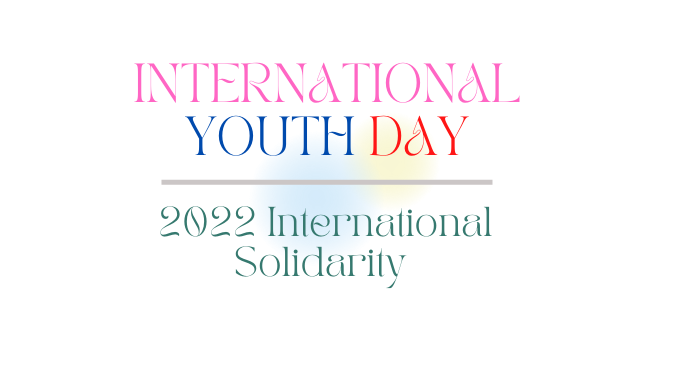
 Zambia’s newly-elected president, Hakainde Hichilema, has been sworn into office after pulling off a stunning rare victory for an African opposition leader.
Zambia’s newly-elected president, Hakainde Hichilema, has been sworn into office after pulling off a stunning rare victory for an African opposition leader.
Hichilema was inaugurated Tuesday morning at a ceremony attended by leaders such as Tanzania President Samia Suluhu Hassan and Malawi leader Lazarus Chakwera.
Zambia’s second female Vice President Mutale Nalumango was also sworn in during the ceremony.
Vice President of the @mdczimbabwe & Former Finance Minister was deported and ruthless taken out of Zambia sometime back. Yesterday @BitiTendai returned to witness today's inaguaration. Like everyone else, he feels a deep sense of liberation to be in Lusaka !!! pic.twitter.com/uhtSdf4TbV
— Joseph Kalimbwe (@joseph_kalimbwe) August 24, 2021
Hichilema defeated outgoing President Edgar Lungu in a landslide by almost one million votes in his sixth attempt at becoming ruler of Zambia.
A new dawn has broken today for the People and Nation of Zambia at the National Heroes Stadium in Lusaka.
Keep Reading
- Chamisa under fire over US$120K donation
- Mavhunga puts DeMbare into Chibuku quarterfinals
- Pension funds bet on Cabora Bassa oilfields
- Councils defy govt fire tender directive
Congratulations President @HHichilema on assuming office and we wish you all the best in the days, months and years ahead as you embark on steering Zambia forward. pic.twitter.com/APEL2tPRm8
— Raila Odinga (@RailaOdinga) August 24, 2021
It was a stunning turnaround for the politician known as HH — Hichilema spent several months in prison in 2017 for what were widely seen as politically motivated treason charges. The charges were dropped under intense international pressure.
Thank you for celebrating with us on this auspicious occasion. Now the real work of building our country begins. Mrs. Mutinta Hichilema, First Lady of the Republic of Zambia. pic.twitter.com/L0QeXrXjYY
— Mutinta Hichilema (@MrsHichilema) August 24, 2021
MDC Alliance Secretary for International Relations @gladyshlatywayo & Youth Assembly Secretary General @Cde_Ostallos met Tanzanian opposition leader @zittokabwe in Zambia as they prepare to attend the inauguration of President Elect @HHichilema. One Zambia, one nation.🇿🇲🇿🇼 pic.twitter.com/3Myp7tjZSI
— MDC Alliance (@mdczimbabwe) August 24, 2021
After initially indicating he may challenge the result, Lungu addressed the nation following the elections, saying: “Based on the revelations issued at final results, I will comply with the constitutional provisions for a peaceful transition of power.
It’s official. President Hakainde Hichilema is the 7th Republican President of Zambia. pic.twitter.com/t2AVRxIARg
— UPND (@UPNDZM) August 24, 2021
Despite conceding defeat early, Lungu was booed by some of the crowd as he made his way to the stage at the packed Heroes stadium in the capital Lusaka to hand over power.
Lusaka here we come!Thank you Zambia… A New Dawn!! pic.twitter.com/PEYWEwDky4
— nelson chamisa🇿🇼 (@nelsonchamisa) August 23, 2021
Hichilema called Tuesday “a new dawn in Zambia,” in a tweet ahead of the ceremony. “As I sit here in our vehicle being driven to Heroes Stadium, I see the love, the joy and the jubilation as people line the streets on our way. I’m overwhelmed with gratitude. I love you all so much,” he added.
Inauguration day is finally here. To new beginnings. One Zambia, One Nation 🇿🇲. pic.twitter.com/qKE6UOjQYu
— Mutinta Hichilema (@MrsHichilema) August 24, 2021
An example for Africa Opposition leaders from other African countries were also invited to the event. Nelson Chamisa, opposition leader in Zimbabwe, told CNN: “This is a significant and fantastic for what is possible for the future of Africa.
Arrived in Lusaka, Zambia for tomorrow's inauguration of President-Elect @HHichilema.
It will be a great day for the people of Zambia and Africa as a whole to witness a seamless transfer of power as envisaged by democratic processes. pic.twitter.com/mBDgqRyKjk
— Raila Odinga (@RailaOdinga) August 23, 2021
Zambia is an inspiration to stubborn laggards in democracy. Strong institutions are key for effective power transfer and smooth transitions,” he said in a statement when asked about the significance of today’s inauguration.
Fantastic transition.. I spent the morning meeting with various leaders from different countries in Africa. Now at the Stadium… we are being taken good of.. Thank you Zambia. Africa is rising. Well done Zambia. Well done Africa! pic.twitter.com/ffwdNJ562c
— nelson chamisa🇿🇼 (@nelsonchamisa) August 24, 2021
Chamisa added that Zambia is an excellent example to be emulated on the continent.
“Africa in general and Zimbabwe in particular needs leaders not rulers, strong institutions – not strong men. Leaders must lead and leave, serve and go. Zimbabwe must be free and Democratic. Freedom can be delayed but never denied,” he said when asked what the message for Zimbabwe is.
Today the people of Zambia are witnessing a day that has eluded most African countries. President @HHichilema takes over from President @EdgarCLung in a peaceful transition. I thank their excellencies for making this possible. pic.twitter.com/0d4SCPb0Zw
— BOBI WINE (@HEBobiwine) August 24, 2021
It is the third time that power has shifted peacefully from a ruling party to the opposition since the southern African country’s independence from Britain in 1964.
There was a huge turnout of mostly young people, some who came dressed in their academic robes to protest lack of employment post graduation.
Today I am in Zambia celebrating with the people of on this new chapter of their journey.
Congratulations to Zambia. Congratulations to my friend @HHichilema.
There is a wave of democratic reform moving across Africa. We are in a new era. The old will fall. The new will rise. pic.twitter.com/MUqeWW402d
— Mmusi Maimane (@MmusiMaimane) August 24, 2021
Joseph Kalimbwe, a youth representative of Hichilema’s UPND party told CNN.
Today, we join the world in celebrating the triumph of democracy over autocracy & the smooth transfer of power in Zambia. President @nelsonchamisa will head the MDC Alliance delegation attending the inauguration. We congratulate President Elect @HHichilema on his victory!🇿🇲🇿🇼 pic.twitter.com/HesfcUT1Rq
— MDC Alliance (@mdczimbabwe) August 24, 2021
The victory is the 17th opposition win in sub-Saharan Africa since 2015. It occurred despite restricted campaigning and suspected rigging in favour of Lungu’s party.
Voter turnout on August 12 was nearly 71 percent, and many Zambians queued late into the night to cast their ballots.
Lungu and his rival were neck-and-neck in both 2016 polls and a 2015 snap election.
But the incumbent’s popularity was sapped by unsustainable infrastructure spending that plunged the copper-rich southern African nation of more than 18 million people into debt default.
The local kwacha currency plummeted and inflation rose above 24 percent, rendering basic goods unaffordable in a country where more than half the population lived in poverty before the coronavirus pandemic.
“Young people gave us the vote. Four million young people between the ages of 18 to 24 registered to vote. It was a huge turnout and it was very personal to them. They want to ensure the mistakes of their parents were corrected. They have voted for our leader on basis he has better policies and ideas and can strengthen our state institutions.” – CNN/Online Reporter
His Excellency President @CyrilRamaphosa departs for Lusaka, Zambia where he is attending the inauguration ceremony of President-Elect Hakainde Hichilema at the Heroes Stadium. pic.twitter.com/ND6Tzep9n8
— Presidency | South Africa 🇿🇦 (@PresidencyZA) August 24, 2021








